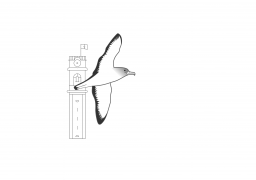3. The opportunities and challenges of translating seabird research into policy
Richard A Phillips (British Antarctic Survey, Cambridge), Ana PB Carneiro (BirdLife International, Cambridge), Pep Arcos (SEO BirdLife, Barcelona), Francis Daunt (Centre for Ecology and Hydrology, Edinburgh) and Yann Rouxel (Birdlife International Marine Programme, RSPB, Glasgow)
Contact: raphil@bas.ac.uk
Seabirds are amongst the most threatened of all bird groups, and many species and populations face threats from multiple sources, including incidental mortality (bycatch) in fisheries, overfishing, invasive alien species, changing climate, pollution, offshore renewables, disease, habitat loss, hunting etc. The aim of this workshop is to provide an insight into different policy mechanisms and frameworks that support seabird conservation, as well as personal experiences of the challenges associated with the integration of science into policy. The workshop will consist of five introductory talks on different topics illustrating the ways in which science can feed into seabird policy and management at local, national and international levels. Following these talks, there will be small-table discussions, providing participants with the opportunity to question the speakers about any aspect of science into policy that interests them. The topics will be as follows. (i) Risk assessment and minimisation of the impact of offshore wind farms on UK seabirds. (ii) Conserving Balearic shearwaters and addressing bycatch in Mediterranean fisheries. (iii) Improving fisheries sustainability and reducing seabird bycatch through certification schemes, retailer audits and supply-chain leverage. (iv) Identification, designation and management of Marine Protected Areas in the High Seas. (v) The roles of the Agreement on Conservation of Albatrosses and Petrels (ACAP) and the Committee for the Conservation of Antarctic Living Marine Resources (CCAMLR) in conserving albatrosses, petrels and other seabirds.
Duration: 14 – 16:30 h | Maximum number of participants: 25

